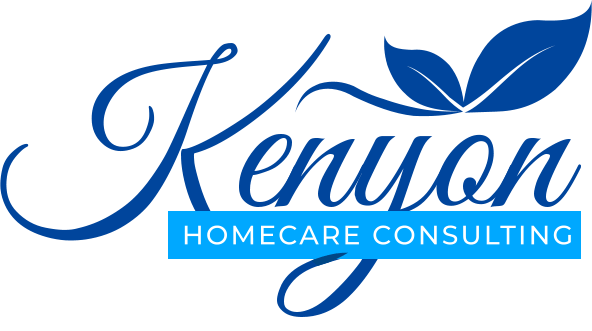Boost Your Agency's Financial Success By Managing Its Biggest Obstacle: Chronic Disease
Educating home health and home care aides in chronic diseases is a strategic move that significantly boosts business success. By providing clinical staff and home care/health aides with specialized knowledge, agencies can enhance the quality of care, improve patient outcomes, and gain a competitive edge in a growing market. This focus on education is a key differentiator that benefits the business, its employees, and its clients.
The Growing Need for Chronic Disease Management
Chronic diseases, such as diabetes, heart failure, and dementia are a leading cause of death and disability in the United States, and they account for a substantial portion of healthcare costs. The management of these conditions often extends beyond the hospital or clinic and into the home, making home health and home care agencies critical players in the healthcare continuum. However, a standard home care aide's training may not be sufficient to effectively manage the complexities of chronic conditions. This is where specialized education comes in.
Business Benefits of educating staff with Chronic Disease Expertise:
Investing in chronic disease education for your clinical staff and home/health aides offers a number of direct and indirect business benefits.
- Improved Patient Outcomes
Field staff who understand the nuances of chronic diseases can provide more effective and proactive care by:
- Monitoring Vitals and Symptoms: An aide trained in heart failure management can accurately monitor signs of fluid retention and alert a nurse or family member which potentially prevents costly and stressful hospitalizations.
- Encouraging Adherence to Care Plans: Aides with knowledge of diabetes can help a client with meal planning, blood sugar monitoring, and understanding the importance of medication timing. This leads to better patient compliance and health outcomes.
- Empowering Patients: Education empowers patients to take an active role in their own health. An aide can serve as a health coach, helping clients to set and achieve self-management goals. This shift from passive recipient to active participant is crucial for long-term health.
2. Increased Competitive Advantage
In a crowded market, an agency's commitment to specialized training sets it apart. By offering certified, highly skilled aides, an agency can market itself as a premium provider of chronic disease care. This can lead to:
- Higher Reimbursement Rates: Under value-based care models, such as the Patient-Driven Groupings Model (PDGM), agencies that demonstrate better patient outcomes and manage complex cases can earn higher Medicare reimbursements.
- Stronger Referral Relationships: Physicians and hospital discharge planners are more likely to refer patients to agencies they trust to provide high-quality, knowledgeable care for complex conditions.
3. Enhanced Employee Retention
Home health and home care agencies face a significant challenge with high employee turnover. Providing specialized training is a powerful tool for retention.
- Professional Growth: Aides who receive chronic disease education feel more valued and see a clear path for professional growth. They are more likely to be engaged and motivated in their work.
- Job Satisfaction: By equipping aides with the skills to handle more challenging cases, you increase their confidence and sense of purpose. This leads to higher job satisfaction and a more stable workforce.
- Higher Pay: Offering advanced training can justify higher wages, which further incentivizes employees to stay with your company.
Implementing a Successful Education Program
To reap these benefits, agencies must be deliberate in how to implement and manage successful training programs. Focus on these key steps:
- Assess Needs: Identify the most prevalent chronic conditions in your community. Tailor your training to focus on the conditions your clients most often face, whether it's Alzheimer's, COPD, or chronic pain management.
- Develop Curriculum: Partner with healthcare professionals, such as nurses or certified educators, to create a comprehensive curriculum. The training should cover the pathophysiology of the disease, symptom management, medication side effects, and communication skills for working with patients and families.
- Use Technology: Utilize online learning platforms to make training accessible and flexible for your clinical staff and home care/health aides. This can include on-line modules, with quizzes, and virtual simulations to test their knowledge and skills.
- Offer Certification: Provide a clear path to certification or specialization. This not only validates your aides' expertise, but also serves as a strong marketing tool for your business.
Chronic disease education is not just an added benefit; it is a foundational element of a successful and sustainable home health and home care business. By investing in your clinical staff and home care/health aides, you are investing in better patient care, a stronger business reputation, and a more dedicated workforce. This creates a win-win for everyone involved.
We know it is costly to develop chronic disease education for all your field staff. To assist with this challenge, Kenyon HomeCare Consulting has developed Chronic Disease University that covers many of the leading causes of disability and death. All courses are certified by DSHS as 8 hours of continuing education. The courses are broken into 2-hour segments with a test after each segment. The courses are take it till you make it, not pass/fail so the test can be repeated as often as needed to help the aide truly comprehend the material. If you have questions, contact us at 206-721-5091 or gkenyon@kenyohcc.com.
Results Based Consulting
Did you find value in this blog post? Imagine what we can do for your home care or hospice agency. Fill out the form below to see how we're leading the industry with innovation, affordability, and experience.
Contact Us










